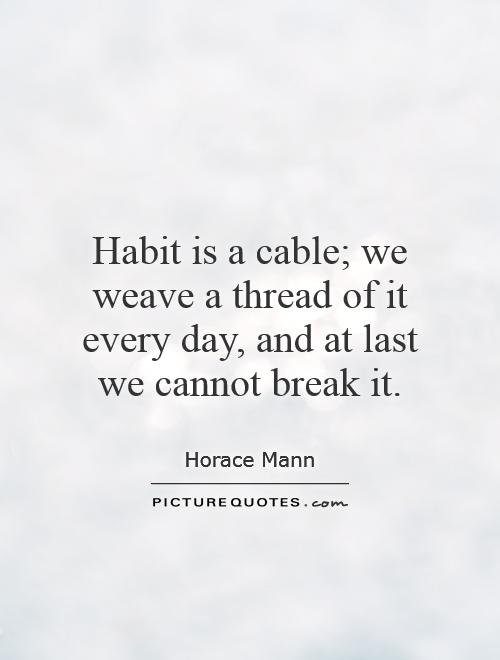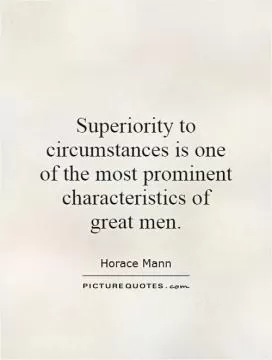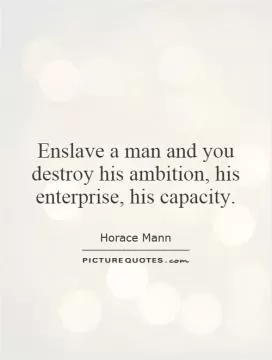Habit is a cable; we weave a thread of it every day, and at last we cannot break it

Habit is a cable; we weave a thread of it every day, and at last we cannot break it
Horace Mann, often referred to as the father of American public education, understood the power of habit in shaping individuals and society as a whole. His quote, "Habit is a cable; we weave a thread of it every day, and at last we cannot break it," speaks to the profound impact that habits have on our lives and the difficulty of breaking free from them once they are deeply ingrained.Mann believed that education was the key to breaking the cycle of poverty and ignorance that plagued many communities in the 19th century. He saw education as a way to instill good habits in young people, habits that would lead to success and fulfillment in their lives. Mann understood that habits, whether good or bad, are formed through repetition and consistency. Just as a cable is made up of many threads woven together, our habits are formed by the small actions we take every day.
Mann's work in education focused on creating a system that would help students develop positive habits that would serve them well throughout their lives. He believed that by instilling habits of hard work, discipline, and critical thinking, students could overcome the challenges they faced and achieve their full potential. Mann's emphasis on the importance of habit in education was revolutionary at the time, as many schools focused more on rote memorization and discipline rather than on fostering good habits and character development.
Mann's quote also speaks to the difficulty of breaking free from negative habits once they have taken hold. Just as a cable is strong and difficult to break, so too are our habits. Once we have repeated a behavior enough times, it becomes automatic and ingrained in our daily routine. Breaking free from these habits requires conscious effort and determination, as well as a willingness to change and grow.












 Friendship Quotes
Friendship Quotes Love Quotes
Love Quotes Life Quotes
Life Quotes Funny Quotes
Funny Quotes Motivational Quotes
Motivational Quotes Inspirational Quotes
Inspirational Quotes